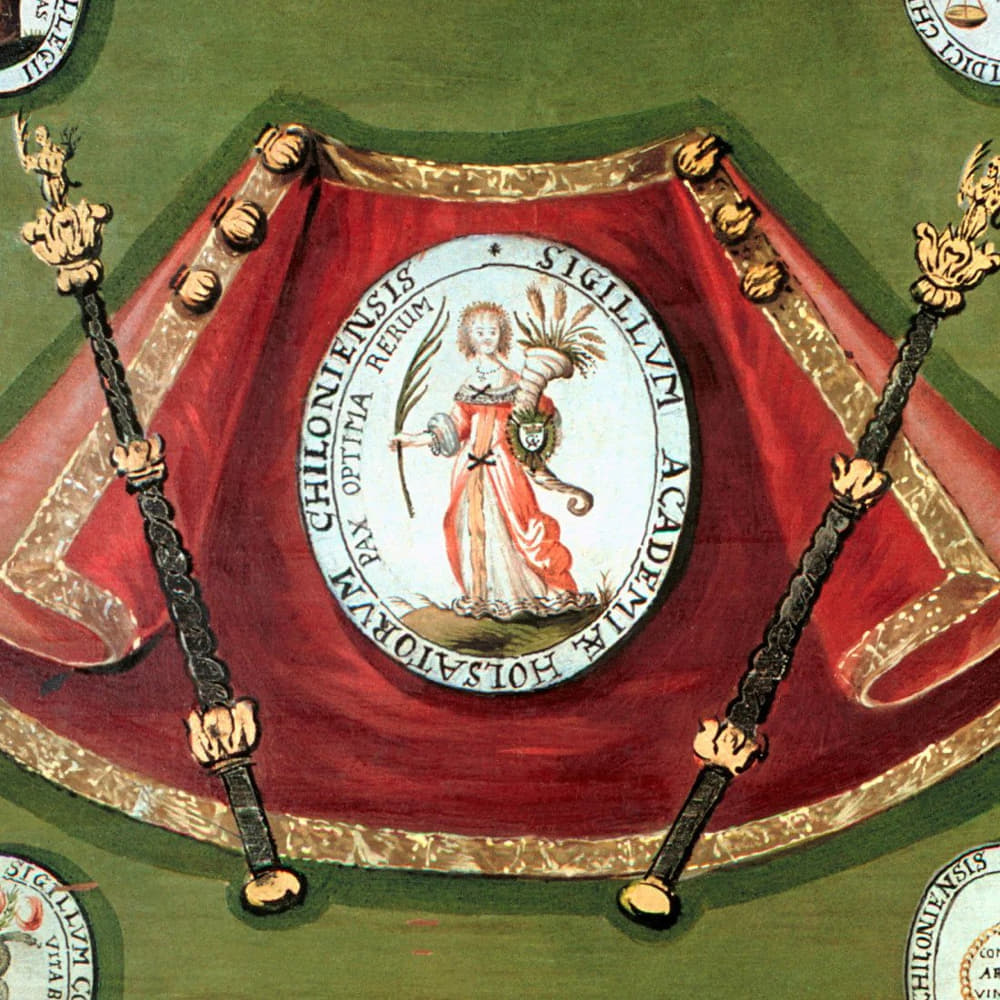Patrik Baab has won outright. The ruling of the Schleswig-Holstein Administrative Court in his favor is now legally binding.
So now it’s official: Patrik Baab did nothing, with his trip to eastern Ukraine, that would justify ending his teaching position at Kiel University. The ruling of the Schleswig-Holstein Administrative Court of April 25 of this year is now legally binding. This is because Christian-Albrechts-Universität zu Kiel (CAU) has allowed the deadline for appealing to the Higher Administrative Court to expire.
After a lot of chest-beating, in the end, CAU did not dare come out of hiding. Its decision to kick journalist Baab out may have been a kowtow to the political situation and especially to the foreign policy course of the German government—but this decision was never legally tenable.
Freedom of the Press Before Political Pandering
The reasoning of the Schleswig-Holstein Administrative Court explicitly emphasized “the freedom of science according to Article 5 (3) sentence 1, GG (Grundgesetz—German Basic Law) and the freedom of the press according to Article 5 (1) sentence 2, var. 1 GG, which the plaintiff [i.e., Baab] is entitled to invoke. The scope of protection of the freedom of the press guarantees,” the court explained in detail, “in its subjective-legal dimension, the rights of freedom against the state for persons and organizations active in the field of the press; in addition, in its objective-legal meaning, it guarantees the institution of the independence of the press.”
Freedom of the press, it goes on to say, “includes, with respect to printed matter, all conduct that serves to obtain, prepare and disseminate opinions and facts for the public… Holders of freedom of the press are also entitled to a subjective right of defense against indirect infringements.” The court expressly emphasized that Baab’s trip to eastern Ukraine at the time of the referenda also falls under this protection, as he was researching for a book and acting as a journalist.
This argumentation is nothing less than a strengthening of the freedom of the press in Germany. It has an impact on other journalists and publicists in the country who see themselves exposed to the reach of politics and academia. The ruling also says that freedom of the press is more important than the anticipatory obedience of various educational institutions that think they have to throw themselves at the mercy of ideologizing politics. Therefore, we are also dealing here with a rejection of ingratiation.
Kiel University as a War Party
Patrik Baab was a journalism lecturer in Kiel. There he taught research, critical questioning—in short: He showed what freedom of the press can achieve—and this at a university that has now received more or less official confirmation that it has not only failed to appreciate that very freedom of the press, but has torpedoed it. A fatal report card for the teaching institution. Can we hope that journalists trained there will have grasped, in the course of their studies, what the qualities of freedom of the press actually mean?
The administrative file on this incident, which is now available, is peppered with one-dimensional classifications of the Baab trip. The university protagonists quoted in it made themselves a war party in the matter. In effect, there is no mention of investigative openness as a value in itself—nor is there a brief interjection that journalists (should) go where it hurts.
But that’s exactly what Baab has done. Basically, he has shown his students—in exemplary fashion—what journalistic work means: not being satisfied with what other professional colleagues have already written, remaining suspicious, displaying skepticism and getting a picture of the scene for yourself. His employers, Kiel University, however, have now emphatically demonstrated that these values are not necessarily required at all—journalists who apply them tend to appear to be a nuisance, and they’d rather be shown the door.
Now What?
The aforementioned administrative file mentions several names of professors who were in lively exchange when Baab’s trip became known via t-online—a news portal, known for its campaigns against intellectuals critical of the German government, and belonging to an advertising group that receives a large part of its orders from exactly this government. Again and again, the accusation was made that Baab had the wrong attitude—and therefore he must be unsuitable as a lecturer. The fact that he did not get on with the job, i.e., with a completely strict condemnation of Russia, thus led to the charge that he also refrained from factual analysis. This is a reproach throughout. Yet Baab has condemned the Russian invasion several times—his condemnation, however, also does not paralyze his journalistic ethos.
After the court decision, which the CAU did not even object to, apparently knowing that it had overreached considerably, the question now arises: Who will take responsibility for this democratic and constitutional failure? Who will justify the fact that funds allocated by the public were wasted for such an act of political pandering?
For example, Dean of the Faculty of Economics and Social Sciences at Kiel University, Christian Martin, who was heavily involved in Baab’s dismissal and who teaches comparative governance and politics? Shouldn’t one expect more sensitivity to publicity from a teacher in this subject, i.e., a sense of how journalism is done and where not to get in its way? After all, this case is no trifle; here, a university has proven that it is willing to sacrifice freedom of the press just to puff itself up as being politically correct. The danger of teaching attitude rather than expertise does not seem so small—especially when people like Baab are thrown out the door.
Roberto J. De Lapuente is a journalist who writes from Germany. He is the author of Rechts gewinnt, weil Links versagt [The Right Wins because the Left Fails]. This article appears through the kind courtesy of Overton Magazin.
Featured: The Seal of Kiel University, with the motto: “Pax optima rerum” (“Peace is the best thing”).
